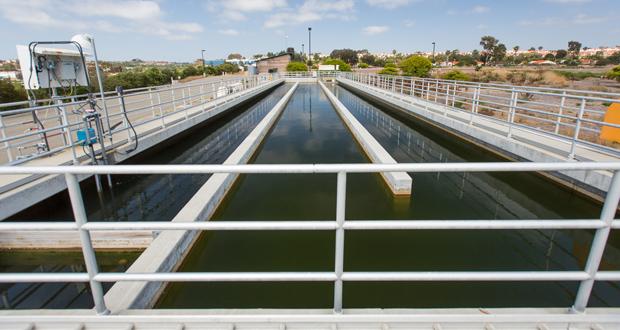Carlsbad CA— The City of Carlsbad is addressing statewide water supply concerns by expanding its water recycling plant by 75 percent, a move that will provide increased water reliability to Carlsbad homes and businesses while conserving limited drinking water supplies.
The City Council, serving as the board of the Carlsbad Municipal Water District, awarded a $7.3 million contract to CDM Constructors on Tuesday, June 9, to design and construct the expansion of the Carlsbad Water Recycling Facility.
The expansion program will increase the capacity of the Carlsbad Water Recycling Facility from 4 million gallons a day to 7 million gallons a day. The expansion program also includes adding 18 miles of new pipe to the existing 79-mile recycled water distribution system and building a new 1.5 million gallon reservoir.
“After the drought in the early 1990s, Carlsbad set a course to find and develop drought-proof water supplies,” said City of Carlsbad Public Works Director Pat Thomas. “When this expansion phase is completed in 2020, about one of every four gallons of water used in Carlsbad will be recycled water.”
Carlsbad has invested approximately $55 million in recycled water projects to date, and infrastructure includes the water recycling plant, pipelines, four pumping stations and storage capacity totaling 35.5 million gallons. Because of this investment the city has more than doubled its recycled water consumption in the last 10 years. Carlsbad has more recycled water meters than any other water district in San Diego County.
As part of the water recycling expansion project, the water district board awarded a $2.1 million contract in May to install 2.75 miles of pipeline to expand the recycled water system to two new sections of the city. The first is in the Palomar Airport Business Park along Camino Vida Roble; the second is in the Calavera Hills area along Carlsbad Village Drive. Other areas of the city are in the planning or design stage include about one mile of pipe along El Camino Real south of Alga Road, and about one-half mile of pipe along Palmer Way and Impala Drive, near Faraday Avenue.
In response to state-imposed restrictions on water consumption because of the ongoing drought, the Carlsbad Municipal Water District launched a water conservation campaign earlier this month to raise awareness of new water use rules and encourage greater conservation. The city’s expansion of its water recycling program is a long-term strategy to reduce pressure on the region’s drinking water supply.
Recycled water is practically drought-proof, and customers who purchase recycled water for irrigation are not subject to the recently passed drought restrictions. A gallon of recycled water is also about 16 percent cheaper than a gallon of potable water, because the water district controls the price and production.
Each gallon of recycled water that is used to irrigate parks, street medians, freeway landscaping, The Flower Fields and golf courses saves a gallon of drinking water, which is facing severe restrictions due to a prolonged dry period and legal restrictions on pumping water through the environmentally fragile Sacramento-San Joaquin River Delta in Northern California.
The city is also expecting its first delivery of drinkable water from a new drought-proof supply— the Pacific Ocean — later this year. The Carlsbad Desalination Project, being built by Poseidon Water, will provide between 7 to 10 percent of the region’s water supply via the San Diego County Water Authority’s regional water distribution system.
The 10-year-old Carlsbad Water Recycling Facility is located next to the Encina Water Pollution Control Facility on Avenida Encinas and is maintained and operated by the Encina Wastewater Authority. It is one of three sources of recycled water distributed by the Carlsbad Municipal Water District. The other two supply sources are the Meadowlark Treatment Plant, owned and operated by the Vallecitos Water District, and the Gafner Treatment Plant, owned and operated by the Leucadia Wastewater District.
The Carlsbad Municipal Water District, a subsidiary of the City of Carlsbad, serves about 85 percent of the city. South and southeastern portions of the city are served by the Vallecitos Water District and the Olivenhain Municipal Water District.
The expansion project is being funded by several sources, including grants, loans and water district enterprise funds that have been allocated for expansion of the district’s recycled water network.
Carlsbad to Increase Water Recycling by 75 Percent
June 10, 2015




